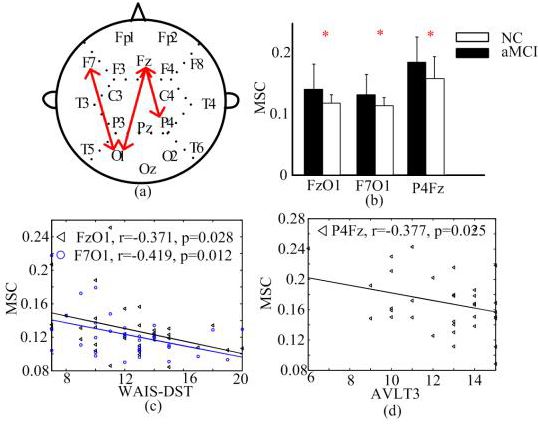
Type 2 diabetes mellitus (T2DM) increases the risk of amnestic mild cognitive impairment (aMCI) and Alzheimer’s disease(AD). aMCI is the transitory stage from normal cognition to AD, which seriously impacts the quality of human life, especially for old people. Electroencephalography (EEG) coherence can assess the functional connectivity between different brain regions, which is an effective way to research the pathogenesis of aMCI and distinguish aMCI patients from normal cognitive subjects. In this paper, we propose a new EEG coherence approach named magnitude squared coherence based on weighted canonical correlation analysis (WCCA-MSC) which improves the accuracy in coherence estimation by the means of weighting. In comparison to magnitude squared coherence based on canonical correlation analysis (CCA-MSC) and magnitude squared coherence based on reduced-rank canonical correlation analysis (RCCA-MSC), the proposed WCCA-MSC behaves better in the influence of noise and relative amplitude of frequency components, and provides more accuracy at non-coherent frequencies. The application of the new method to EEG signals showed increased coherence in Delta and Theta frequency bands, decreased coherence in Alpha frequency band in aMCI patients. Considering its property of better performance, the proposed coherence method is of great advantage in analyzing the pathogenesis of aMCI with T2DM.

